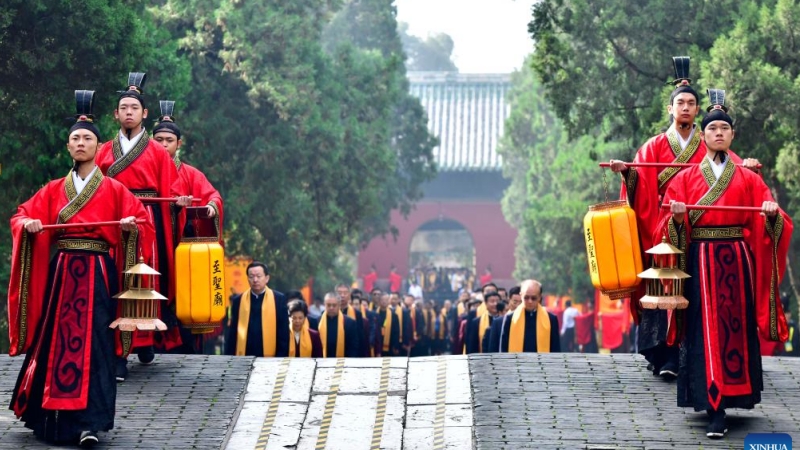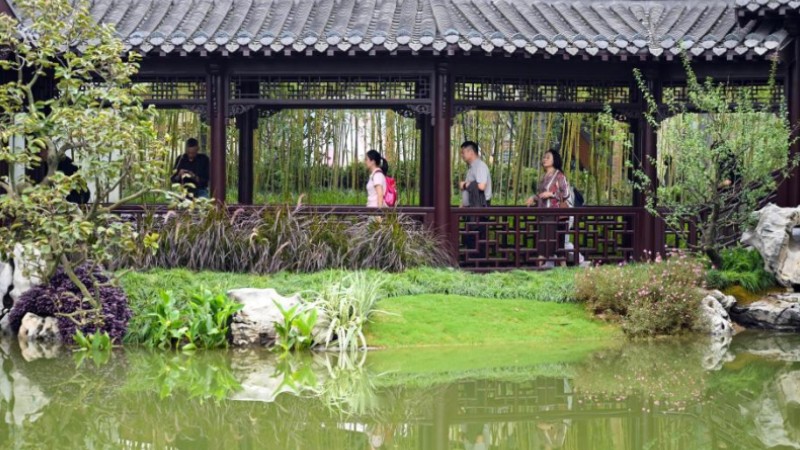Interview: China's BRI contributes tremendously to Cambodia's economic, social development -- deputy PM
PHNOM PENH, Oct. 7 (Xinhua) -- China's Belt and Road Initiative (BRI) has contributed tremendously and timely to Cambodia's economic and social development, with achievements enjoyed by the government and people of the Southeast Asian country, Cambodian Deputy Prime Minister Aun Pornmoniroth has said.
Pornmoniroth, who is also the minister of economy and finance, said the BRI has played an essential role in promoting development in Cambodia by boosting sustainable economic and social development through cooperation in various sectors, including infrastructure, economy, investment, financial sector, and people-to-people connectivity.
Despite the adverse impacts of the COVID-19 pandemic, there were also progress and significant outcomes in the Cambodia-China BRI cooperation, he said.
Specifically, various vital infrastructures have been developed, for instance, Phnom Penh-Sihanoukville Expressway, Siem Reap-Angkor International Airport, Sihanoukville Special Economic Zone (SSEZ), a new container terminal at the Phnom Penh Autonomous Port, roads and bridges as well as hydropower plants, he said.
Another recent significant result from the BRI cooperation is the Phnom Penh-Bavet Expressway, the kingdom's second Chinese-invested expressway, with the groundbreaking ceremony held in June 2023, he added.
"These indeed enhance transportation and power infrastructure connectivity, deepen trade and investment cooperation and expand the space for industry and industrial parks cooperation since the bilateral cooperation plan rolled out," Pornmoniroth told Xinhua in an interview.
"The Sihanoukville-Phnom Penh Expressway has enormous potential to enhance connectivity, improve logistical efficiency, and reduce trade costs," he said.
The deputy prime minister said over 1 million Cambodians now have access to jobs thanks to the SSEZ and the Chinese investment in the garment sector.
Moreover, he said the construction of Morodok Techo National Stadium, the Cambodia-China Friendship Tboung Khmum Hospital, and the medical building at the Cambodia-China Friendship Preah Kossamak Hospital are crucial results of the Cambodia-China BRI cooperation to promote the health and sports sector.
He said the China-aided Morodok Techo National Stadium enabled Cambodia to host the 32nd Southeast Asian Games (SEA Games) successfully in May.
"The BRI has taken cooperation between Cambodia and China to greater heights," he said.
The BRI, which consists of the Silk Road Economic Belt and the 21st Century Maritime Silk Road, was initiated by China in 2013 to build trade and infrastructure networks connecting Asia with Europe and Africa on and beyond the ancient Silk Road trade routes.
According to Pornmoniroth, the Cambodia-China cooperation under the BRI framework focuses on six critical areas, namely infrastructure, agriculture, capacity building, industrial cluster, culture and tourism, and finance.
"This cooperation framework has assisted Cambodia in diversifying its sources of growth and enhancing economic competitiveness in catching up with other countries in the region through infrastructure development, production capacity, economic linkages, and social development," he said.
Photos
Related Stories
- In pics: zoom-in on Jakarta-Bandung High-Speed Railway
- Interview: Belt and Road brings enormous opportunities for Kyrgyzstan, says official
- Interview: Shanghai to provide high-standard opening-up platform for BRI: vice mayor
- In pics: bridges built in different countries as projects of BRI
- Chinese hybrid rice helps Africa enhance food security
- Chinese-built railways empower locals to "fish on their own"
Copyright © 2023 People's Daily Online. All Rights Reserved.









